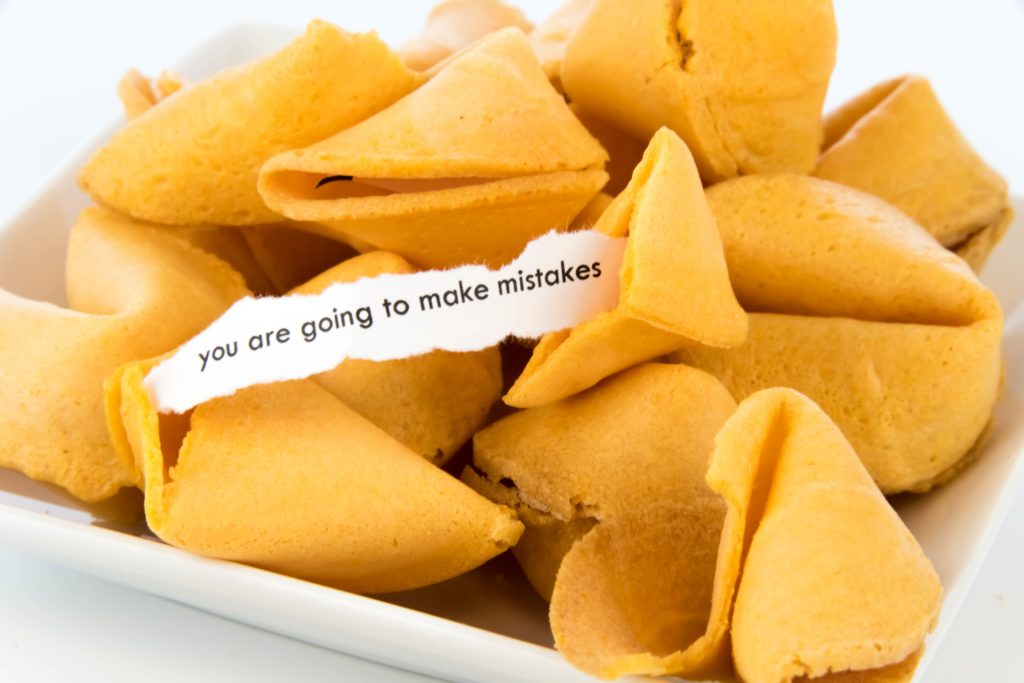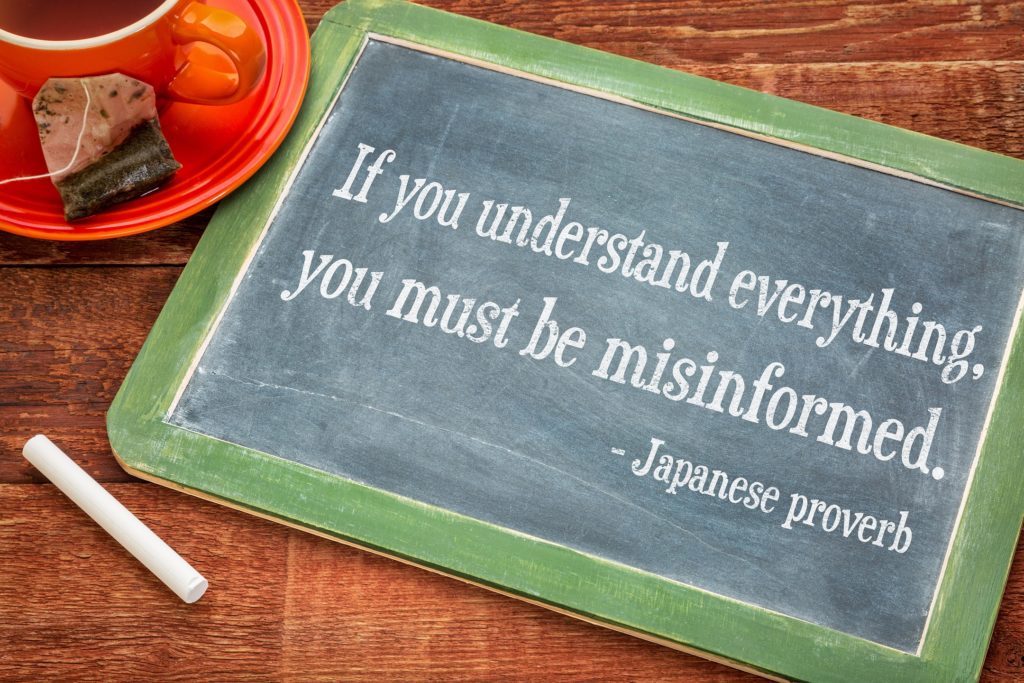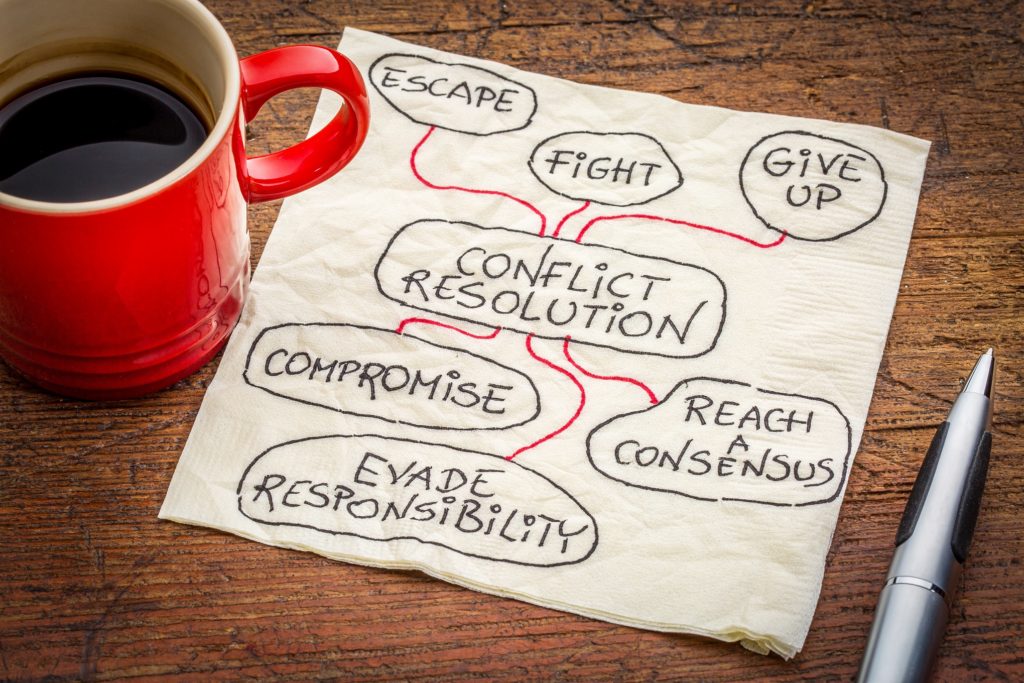It’s not easy to stop a habit you’ve had for many years.
I recently wrote a post about one of our biggest assets that can also be the thing that trips us up and gets us stuck: our minds.
We easily (often unknowingly) let our repetitive, fixated, circular brain noise dominate our world and our life. For example, we could be thinking so narrowly that we’re missing all the opportunities that are showing up around us.
Letting go of mind traps like Over-Thinking, Overwhelm and Overly Creative Disorder (OCD) is central to moving our mindset into a better place.
Still feeling stuck? Let’s chat more about your genius self and Rigidity.
We all like to be right, right? How many people do you know who are excited about being wrong? It’s human nature. But needing to be right all the time can leave us stuck in a couple of ways.
First of all, it makes us afraid to look at information or insight that contradicts our own point of view. We get rigid and put the blinders on – and in the process, we miss a lot of helpful hints and alternatives that could help us get where we want to go more smoothly.

We become afraid to make mistakes.
As every good entrepreneur knows, if you’re not making mistakes, you really aren’t stretching enough! Fear of making mistakes often shows up in “but that’s the way we’ve always done it.” I call this ‘habitual thinking,’ which really means we take the same rigid, worn-out approach to whatever issue comes along.
Another part of being ‘right’ usually requires that someone else is ‘wrong,’ which is a huge trap!
How you relate to others can clearly indicate whether you’re stuck in the mindset of needing to be right. Do you find yourself constantly arguing? Defending and proving your point of view? Maybe you think you’re well-adjusted and reasonable. It’s just all those other people who have a problem.
Well, I’ve got some bad news: they aren’t the real problem. Not to say there aren’t difficult people out there. But if you’re personally reacting in negative ways, whether through action or emotion, you’re allowing yourself to be engaged in an unhealthy dynamic – which is not what someone who is unstuck is going to do.
Are conflicts and disagreements part of your everyday life?
There are endless sources of conflict, but your permission – explicit or implicit – is required for you to be involved in any kind of negative discourse at all.
Does this mean you shouldn’t defend yourself if you’re being attacked, be it verbally or physically? Sometimes you need to make your voice heard or protect your wellbeing. But if personal attacks occur somewhat often, you need to examine what in your mindset is allowing that unhealthy drama to continue.
In an interpersonal relationship, you’re only ever going to be able to control your own actions and reactions.
If you’re struggling with a partner, client, or subordinate, the first place to look is into your own mindset. Are you being inflexible? Are you projecting outmoded thoughts or unrealistic expectations? Overall, where is your own culpability? Often it comes down to a place of ego or attachment. We may sense that someone is operating from an unhealthy place, or maybe just a distasteful one, and that can trigger the urge to correct or admonish. We want to ‘be right,’ and we assert that ‘rightness’ over someone we perceive as ‘wrong.’ Instead we should ask ourselves, “What words and actions are best going to help improve the situation? Are we problem-solving or merely being petty and rigid?”
In times of direct disagreement, it can be useful to examine perspectives; both your own and the other party’s. If you’re dealing with an openly hostile person, this can naturally be more difficult. But many times conflicts are due to miscommunication and misinterpretation.

Sometimes we don’t know everything, and that’s not a bad thing to admit.
No one wants to be the one who is wrong – it’s the opposite of right! We live in a world filled with big egos and strong opinions, and if we hear something different than our own opinion, we either speak up or pipe down. But there’s always a third option.
How about just listening and considering the other person’s thoughts? Even as a solo entrepreneur, one must collaborate with others in order to be successful. It’s bullheadedness that keeps you from getting the results you want and leaves you stuck.








